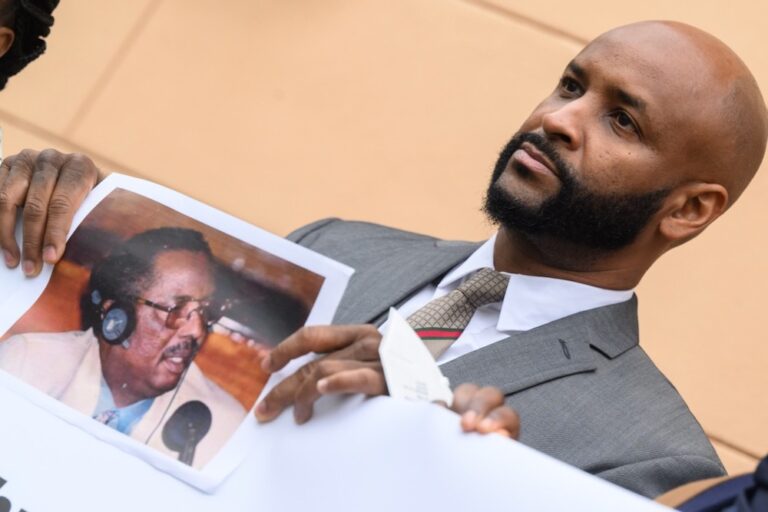The government has asked the ECOWAS Community Court for additional time to prepare its defence in the case of journalist Musa Saidkhan.
(MFWA/IFEX) – On October 28, 2009, the Gambian government, the defendant in the case of Musa Saidykhan, former editor-in-chief of banned Banjul-based “The Independent” newspaper, allegedly tortured by state agents in 2006, asked the ECOWAS Community Court hearing the case for additional time to prepare its defence.
This occurred after the government had withdrawn an application it filed to challenge the Court for dismissing a preliminary objection it had raised in the case. The Court has therefore fixed December 15 for the hearing to commence.
After boycotting the court on two occasions, the Gambian government, in a 20-page document, called on the Court to dismiss Saidykhan’s case because it lacked jurisdiction to hear the matter and that the plaintiff had also not exhausted all domestic remedies.
This development comes in the wake of two successive losses suffered by the Gambian government in the case before the Court as well as an unsuccessful attempt to get ECOWAS member-states to amend the supplementary protocol that allowed citizens to access the court without exhausting local remedies.
In November 2007, the Media Foundation for West Africa (MFWA) brought the suit on behalf of Saidykhan in order to seek justice for him and also bring relief to many other Gambian journalists who had suffered a similar fate and have escaped into exile for fear of repression.
Saidykhan escaped into exile after his release from illegal detention. He is among scores of victims who were illegally detained and suffered all manner of cruelty, including torture, at the hands of President Yahya Jammeh’s security agents in the aftermath of an alleged coup attempt in March 2006.
The government had previously shown gross disrespect for the Community Court in an earlier case when it refused to carry out an order to release Chief Ebrima Manneh, another Gambian journalist detained by the notorious National Intelligence Agency (NIA) in 2006. The Court repeatedly served the government with writs in that case but it gleefully refused to make an appearance, which compelled the Court to give judgment in default.


